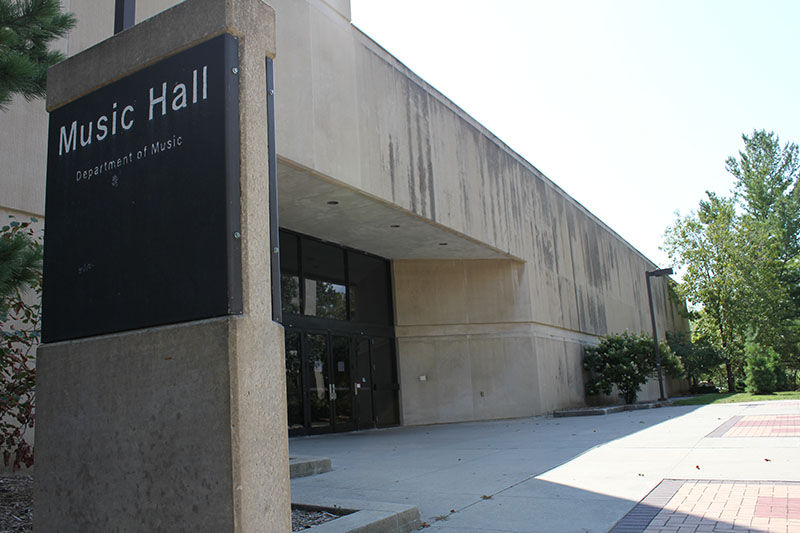The Dedication to be a Musician
Musicians must commit money and time to performance and practice.
December 7, 2015
The over-glorified idea of touring the world and playing to sold-out arenas is only one possible outcome for a musician. With countless options including teaching, recording and performing, musicians dedicates their lives to their music.
Spending time practicing outside of private lessons and support from family are critical to a musician’s development. Besides the cost of private lessons, musicians also have the cost of the instrument, equipment and sheet music.
“[Music] dominates your life,” said Gregory Oakes, professional clarinetist.“You need to be fully immersed in it.”
As a child, Oakes said he knew he wanted to be a musician, but at the time, he wanted to be a concert pianist. He eventually decided to become a professional clarinetist.
“The fact that my mom was willing to drive and pay for lessons and my instrument definitely helped,” Oakes said.
Similarly, both Elaine Kramme and Lauren Adams, music students at Iowa State, decided to become musicians after starting their respective instruments early in their education.
“My family was very supportive and [was] musical as well,” said Kramme, senior in music.
Kramme’s family helped her while she was learning music by paying for her flute and private lessons after she started to learn the instrument in fifth grade.
Adams, sophomore in music, said she started playing the clarinet in sixth grade and also had help from her parents.
“Usually I consider a good practice day two to three hours,” Kramme said.
While every music student is required to take one private lesson each week with a professor who specializes in the student’s instrument, musicians spend multiple hours a day practicing and must also attend group lessons.
“I find the best way to practice is to do it a half-hour at a time,” Adams said. “This adds to the three- or four-hour daily practice.”
Aside from individual practices, many students are involved in concert groups. Each group requires students to meet for roughly two to four hours per week.
Iowa State’s music department requires students to audition before entering the program, which requires them to know the instrument.
Oakes said when he was learning music, his mom would drive two hours away for lessons, multiple times a month.
Similarly, Adams drove two hours once a month to learn with Oakes. She said she drove even though the cost per lesson was high because she thinks she will always have things she can learn from Oakes.
Adams thought that lessoning with Oakes was worth the drive because she knew that Iowa State was a school she was considering. She wanted experience with the person who would become her professor and mentor.
Adams estimated that she and her family have spent about $8,000 on her instruments — three clarinets and one saxophone.
Many musicians have multiple variations of the same instrument because they need an instrument that will match their current skill level. This is similar to a child needing different books as they learn to read.
She is also required to purchase reeds, which cost about $30 for a pack of three to five reeds, and is constantly replacing them.
Adams spends around $15 for every piece of music she buys.
A study published in 1993 by Malcolm Gladwell estimates that it takes 10,000 hours of practicing a skill to master it.
“I figured the time I reached my 10,000 hours was when I won my first professional audition,” Oakes said.
While people can start practicing by just picking up and instrument and making noise, the practice time will not be productive. Oakes said lessons are the best way to make sure that playing time is productive.
Even after the mark of being a master at his instrument, Oakes said practice is still necessary. Every piece of music is different, and every time a piece is performed it is performed differently.
People who wants to learn to play an instrument should seek out private lessons and look to a professional who can help them learn how to use practice time effectively. Every musician is different and has different goals but they all dedicate their lives to their instrument.







